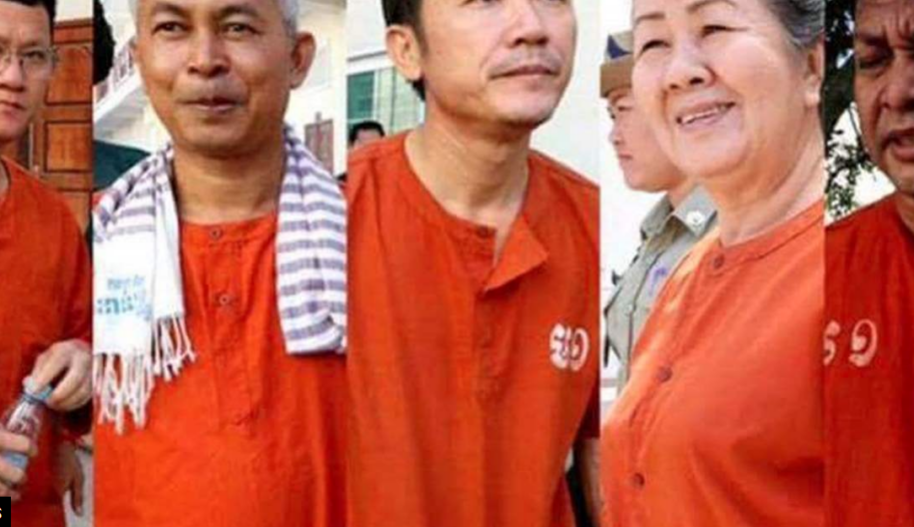Responding to the news that a court in Cambodia has convicted the “ADHOC Five” peaceful activists of “bribery” and given them suspended five-year prison sentences, Minar Pimple, Senior Director of Global Operations from Amnesty International, said:
“This verdict is yet another example of Cambodian authorities’ use of the courts to harass and stifle the human rights movement. To qualify legal aid as ‘bribery’ is absurd.
“This is a political outcome to a political case. The ADHOC Five should never have been arrested and prosecuted in the first place. This is an obvious attempt to punish the activists for their peaceful human rights work, and deter them and others. The verdict and sentence must immediately and unconditionally be repealed.
“This case will cast a long shadow on Cambodia’s peaceful human rights activists, who have come under increasing assault by the authorities. This crackdown must end immediately.”
Background
The ADHOC Five are Nay Vanda, Ny Sokha, Yi Soksan, Lim Mony and Ny Chakrya – all current or former employees of the Cambodian Human Rights and Development Association (ADHOC), one of Cambodia’s leading human rights organizations. In May 2017, the case of the ADHOC Five featured in Amnesty International’s report Courts of Injustice: Suppressing activism through the criminal justice system in Cambodia.
They were arrested on 28 April 2016 by Cambodia’s Anti-Corruption Unit on trumped-up charges of bribery. The Five were released on bail on 29 June 2017, after more than a year in pre-trial detention, but remained under the court’s supervision and were prevented from leaving Cambodia.
In recent years, the Cambodian government has stepped up its attack on the rights to freedoms of association, expression and peaceful assembly by threatening, detaining and prosecuting people for human rights work or peacefully expressing criticism.
While 20 such prisoners have been released since the national election in July 2018, most of those released still have pending criminal charges or sentences that could be resumed anytime. Dozens of radio stations and several newspapers were also shuttered in 2017, and legal changes have given authorities arbitrary powers to dissolve political parties, criminalize protest and interfere with NGOs.













